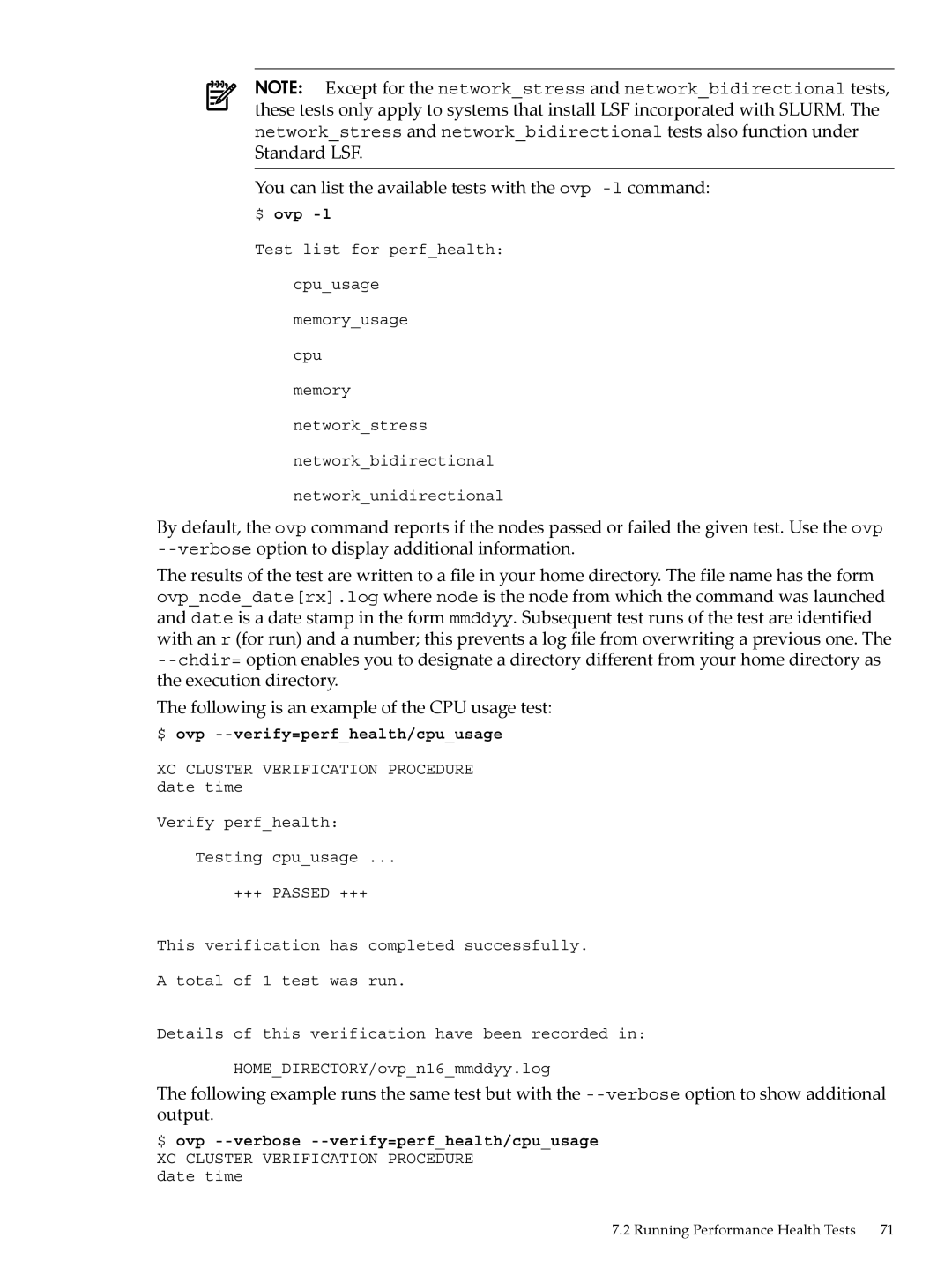
NOTE: Except for the network_stress and network_bidirectional tests, these tests only apply to systems that install LSF incorporated with SLURM. The network_stress and network_bidirectional tests also function under Standard LSF.
You can list the available tests with the ovp -l command:
$ ovp -l
Test list for perf_health: cpu_usage memory_usage
cpu memory network_stress network_bidirectional network_unidirectional
By default, the ovp command reports if the nodes passed or failed the given test. Use the ovp
The results of the test are written to a file in your home directory. The file name has the form ovp_node_date[rx].log where node is the node from which the command was launched and date is a date stamp in the form mmddyy. Subsequent test runs of the test are identified with an r (for run) and a number; this prevents a log file from overwriting a previous one. The
The following is an example of the CPU usage test:
$ ovp --verify=perf_health/cpu_usage
XC CLUSTER VERIFICATION PROCEDURE date time
Verify perf_health:
Testing cpu_usage ...
+++ PASSED +++
This verification has completed successfully.
A total of 1 test was run.
Details of this verification have been recorded in:
HOME_DIRECTORY/ovp_n16_mmddyy.log
The following example runs the same test but with the
$ ovp --verbose --verify=perf_health/cpu_usage
XC CLUSTER VERIFICATION PROCEDURE date time
7.2 Running Performance Health Tests | 71 |
